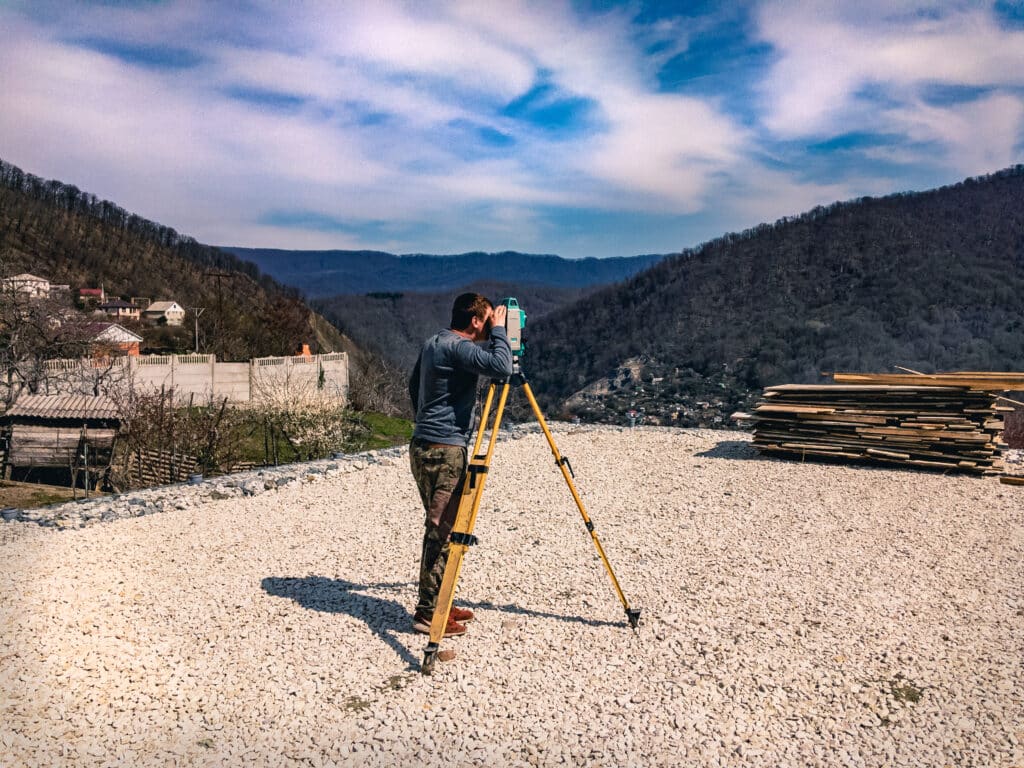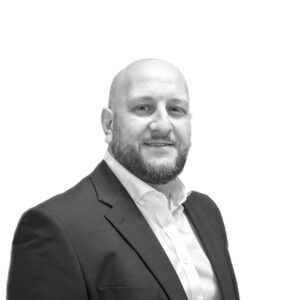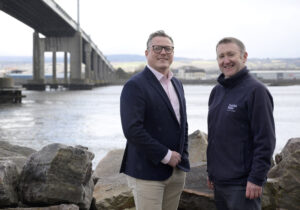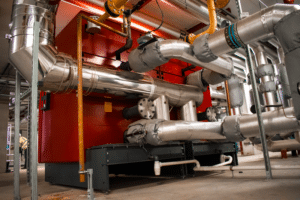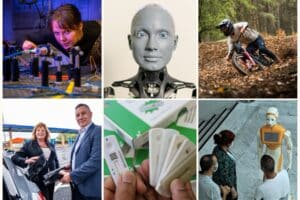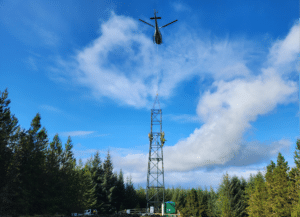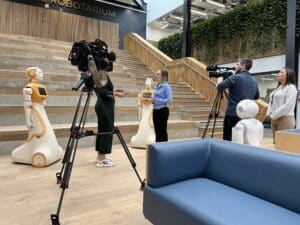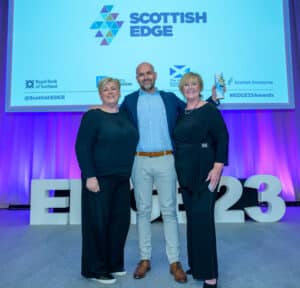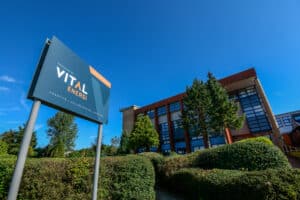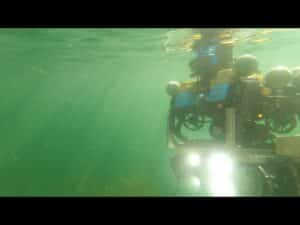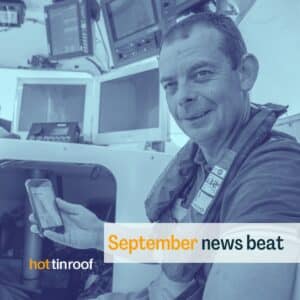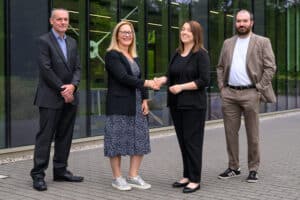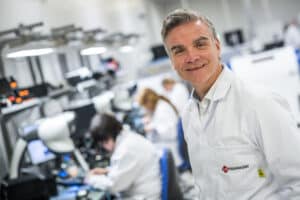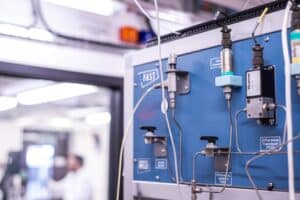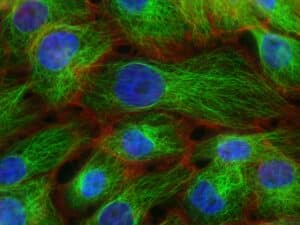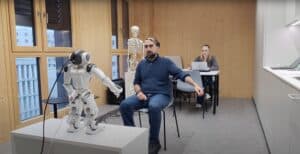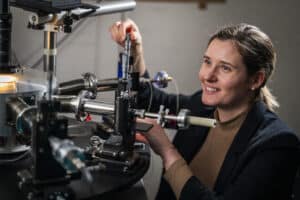A new multimillion-pound project led by Heriot-Watt University’s global research institute for net zero is using AI to slash the time and cost involved in modelling carbon capture and storage (CCS) methods.
Called ECO-AI, the research team is developing specialist AI techniques for scientific computing, material discovery and financial forecasting, to enable efficient CO2 capture and storage in deep geological formations whilst setting out the financial implications in deploying these techniques for businesses and for policy makers.
It is hoped the research will show how bespoke technologies can enable CCS to be a viable economic option for traditional industries wanting to decarbonise. Targets include hard to decarbonise industries such as steel, cement and chemicals.
This work, in partnership with colleagues from Imperial College London, is expected to leave a significant framework for future researchers to build upon and will play an important role in helping the UK Government to reach its net zero target by 2050.
Funded by £2.5 million from UK Research and Innovation, the ECO-AI project aims to develop energy-efficient solvents for CO2 capture followed by permanent storage of captured CO2 into geological storage sites, through various AI techniques.
The research is one of the projects being delivered by Heriot-Watt University’s global research institute which is focused on achieving net zero and beyond. Called iNetZ+, the team brings together a range of scientific expertise including chemical engineering, physics, geology, mathematics, computer science and economics.
By using specialist AI simulators, standard techniques can be replaced for modelling flow migrations, and simulations on a supercomputer that may have previously taken up to 100 days can now be achieved in just 24 hours.
To strengthen its research, the university hosted a two-day workshop and three-day hackathon event, bringing together leading experts in AI, computational science, and CCS. The workshop event highlighted the vital role of interdisciplinary collaboration and discussed using digital twins for decision-making around reaching net-zero emissions under uncertainty, as well as incorporating simplified models into large-scale optimisation replicas for complex systems.
The three-day hackathon event provided an opportunity for teams to develop AI-based solutions for challenges related to CO2 capture, storage, and policy/economics. With access to tools, data, and expert support, they tackled tasks like discovering new materials, modelling subsurface fluid flow, and analysing patterns in carbon capture and storage patents.
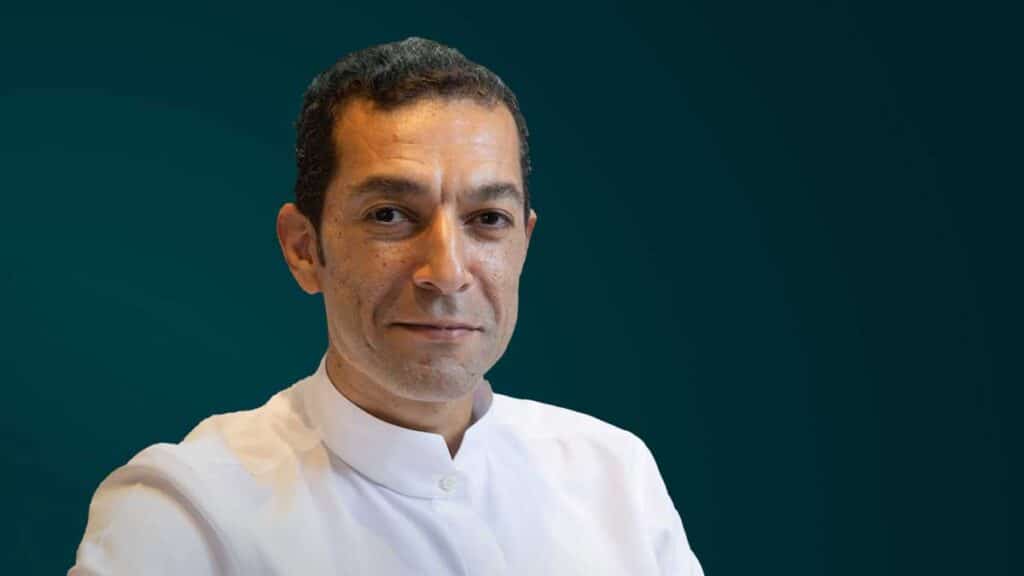
Professor Ahmed H. Elsheikh, leader of the data and artificial intelligence research theme at iNetZ+ says:
“Our efforts for the ECO-AI research are primarily focused on refining algorithms that can potentially be applied to CCS in the future in typically hard to decarbonise industries.
“Our research has the ability to really advance existing scientific research streams to source suitable options for safe storage of CO2 without consuming too much energy and without the need to deploy expensive and often time-consuming exploratory investigations.
“Based on the great engagement and interactions evidenced in our workshop and hackathon events, we’re confident that through our applied research and with more collaboration with business and industry, we can collectively make a profound impact on the global shift towards a carbon-neutral future.”
Professor Clare McCabe, co-leader of the project’s carbon capture component and Bicentennial Professor at Heriot-Watt University adds:
“The enthusiasm and ingenuity displayed during the hackathon was truly inspiring. Students and postdocs coded tirelessly, developing AI models that could reshape how we approach CCS technologies. I was very impressed with the workshop, but especially so with the optimism and energy in the hackathon. Students and postdocs from both within and outside the ECO-AI project coded for three days working on various AI models related to the ECO-AI project.”
Gill Murray, Deputy Principal for Enterprise and Business at Heriot-Watt University says:
“Using our new global research institute as a vehicle to impact global solutions towards decarbonisation, we’re pioneering ground-breaking methods in all major sectors that can propel us toward a net-zero future. Events like the ECO-AI workshop and hackathon events are great examples of academia and industry collaborating on this goal.
“At the core of our overall mission is the integration of research-informed teaching that will shape the next generation of leaders and engineers. By fostering a dynamic environment we can cultivate a culture of innovation and excellence. We are intent on innovating for the future and beyond.”
For more information about the ECO-AI project, please visit https://ai4netzero.github.io/eco-ai/
More information on iNetz+ can be found https://www.hw.ac.uk/uk/research/inetzplus.htm

